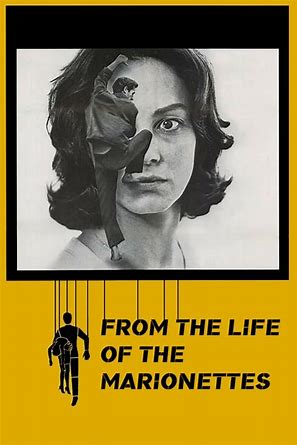Alain Resnais’ Muriel will probably seem disorienting
at a first viewing, at times dawdling and at others jarringly jumping around,
the events shown on screen often seeming less significant than others that are
frequently referred to, its ending unresolved and cryptic. But with repeated
viewing, these characteristics come to seem central to its astounding
interweaving of form and content, and evocation of history and memory; it feels
less like watching a film than moving around inside it, always aware that to
look in one place is to miss what’s happening in another. The plot has Delphine
Seyrig’s Helene reconnecting with her old wartime lover Alphonse after many
years, during which she was married and widowed and now lives with her stepson,
dealing in antiques out of her home (a perfect representation of a life highly
conditioned by memories, if not necessarily one’s own). The stepson, Bernard,
refers to a fiancée, Muriel, who appears not actually to exist; we later learn
that during his wartime service, the same name was used to denote a woman
subjected to military atrocity, an event which continues to haunt him. But it seems
it wasn’t that woman's real name either (the real Muriel in the film isn’t even seen, being
merely the subject of a briefly overheard cry in the street), and likewise
almost every aspect of Alphonse’s past and present is unreliable, a
characteristic reflected in the film’s unstable-seeming, pliable form, and in
its small-town setting, damaged during the war and now uncertainly evolving
(one of its key landmarks is a brutalist-looking casino which appears to wreak
havoc with Helene’s finances). The ending, coming in the wake of some abrupt
realigning of the lives we’ve been watching, follows a previously unseen
character arriving in town and wandering alone through Helene’s space,
providing a strangely appropriate sense of rebalancing even as it withholds
conventional closure. Overall, a must-see (and, as noted, once won’t likely
do).





